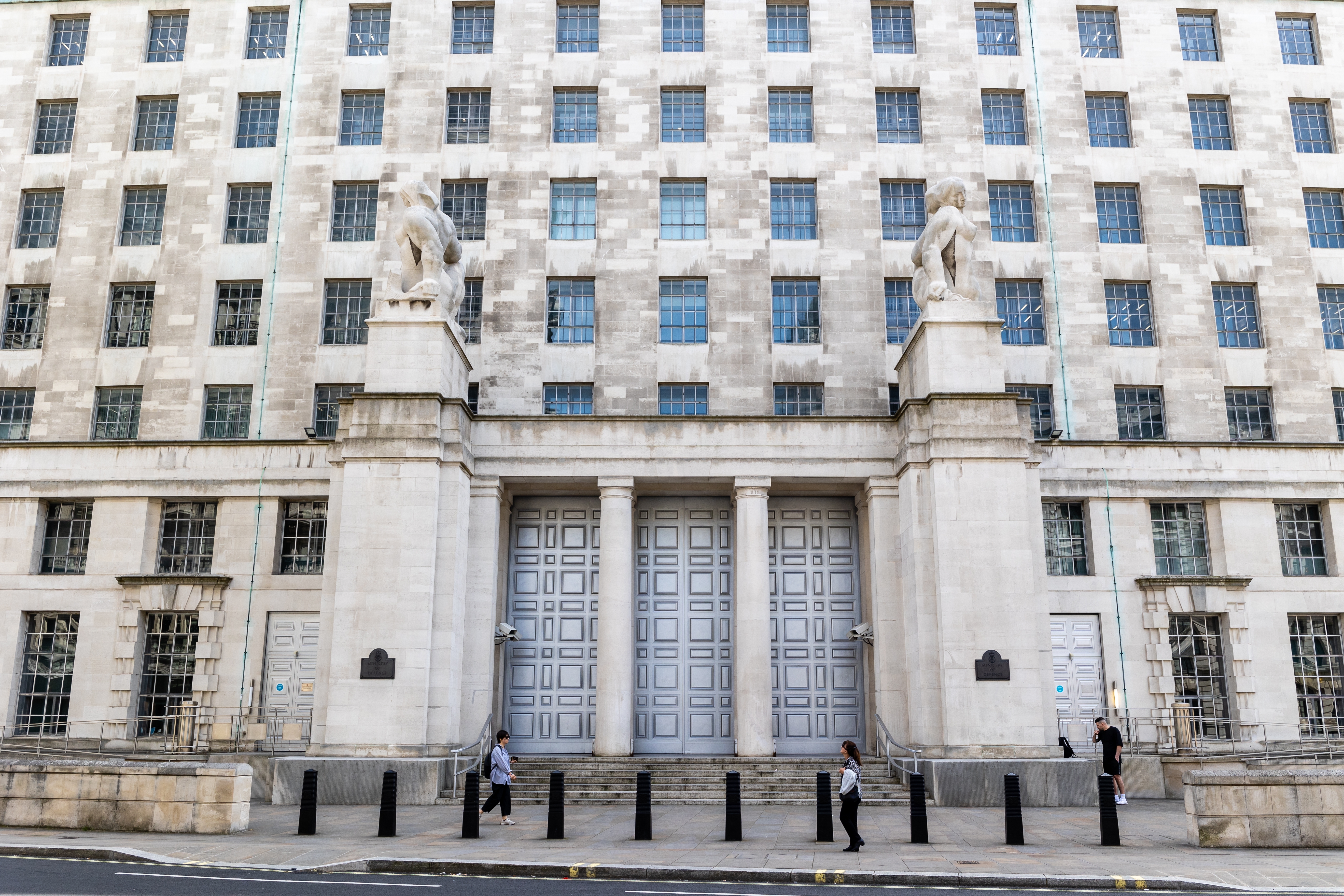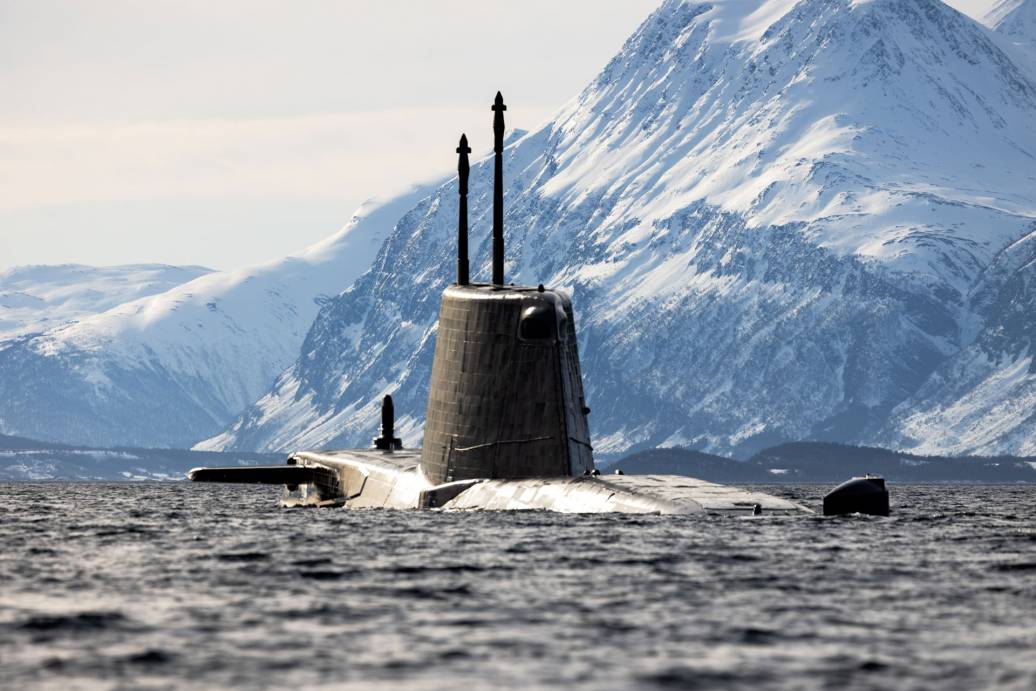UK begins biggest arms drive since Cold War

Image by By eyematter / copyright Shutterstock
He has also set an ambition to spend 3% of GDP on defence in the next parliament, as economic and fiscal conditions allow, in order to keep the British people safe and secure for generations to come.
As set out in the Plan for Change, national security is the first duty of the government. In recent years, the world has been reshaped by global instability, including Russian aggression in Ukraine, increasing threats from malign actors, rapid technological change and the accelerating impacts of climate change.
The Prime Minister set out yesterday how the UK will be stepping up to meet this generational challenge with a generational response. The announcement came the day after the third anniversary of Russia’s barbaric illegal war in Ukraine and shows that the UK will step up and meet this pivotal moment of global instability head-on, with a commitment that will see the biggest sustained increase in defence spending since the Cold War.
The Prime Minister knows that the working people of Britain have paid the cost of malign actors abroad, whether through increased energy bills, or threats to British interests and values. He is committed to making the country safer, more secure, and increasingly resilient against these interconnected threats.
The announcement demonstrates the UK’s global leadership in this space. In calls with foreign leaders over the weekend, the Prime Minister reiterated the UK’s commitment to securing a just and enduring peace in Ukraine and the need for Europe to step up for the good of collective European security.
The investment in defence will protect UK citizens from threats at home but will also create a secure and stable environment in which businesses can thrive, supporting the Government’s number one mission to deliver economic growth.
The increased spending will sustain our globally competitive industry, supporting highly skilled jobs and apprenticeships across the whole of the UK. In 2023-24, defence spending by the UK Government supported over 430,000 jobs across the UK, the equivalent to one in every 60.
Sixty-eight per cent of defence spending goes to businesses outside London and the South East, bolstering regional economies from Scotland to the North West.
Through the upcoming Defence Industrial Strategy, this substantial investment will drive R&D and innovation across the UK, including developing technologies such as AI, quantum and space capabilities.
Prime Minister Keir Starmer said: "It is my first duty as Prime Minister to keep our country safe. In an ever more dangerous world, increasing the resilience of our country so we can protect the British people, resist future shocks and bolster British interests, is vital.
"In my Plan for Change, I pledged to improve the lives of people in every corner of the UK, by growing the economy. By spending more on defence, we will deliver the stability that underpins economic growth, and will unlock prosperity through new jobs, skills and opportunity across the country.
"As we enter this new era for national security, Britain will once again lead the way."
In addition to our plan to reach 2.5%, the Prime Minister also announced that the definition of defence spending will be updated to recognise what our security and intelligence agencies do to boost our security, as well as our military. This change means that the UK will now spend 2.6% of GDP on defence in 2027.
This shift recognises that the activities of our intelligence increasingly overlap and complement that of our Armed Forces, emphasising the need for total deterrence against the modern hybrid threats we face, from cyber-attacks to sabotage.
The increase in defence spending will be funded by reducing Overseas Development Assistance (ODA) from 0.5% to 0.3% of GNI and reinvesting it into defence.
This difficult choice reflects the evolving nature of the threat and the strategic shift required to meet it whilst maintaining economic stability, a core foundation of the Plan for Change. Meeting the fiscal rules is non-negotiable, and the government will take the tough but necessary decisions to ensure they are met.
The UK remains fully committed to making the world a safer and more prosperous place. In the current geopolitical environment, the Prime Minister is clear that the best way to do that is by deterring and preventing conflict and targeting our aid more effectively. For example, having delivered an increase of £113 million in humanitarian funding for people in Sudan and those who have fled to neighbouring countries, which will help to reduce migration flows to the UK and help address one of the major humanitarian crises of our era.
The government remains committed to reverting spending on overseas aid to 0.7% of Gross National Income, when the fiscal conditions allow.
This comes alongside an ongoing review into ODA spend which will ensure that every pound of development assistance is spent in the most impactful way.
This increase in defence investment will help us build a modern and resilient Armed Forces. It will accelerate the adoption of cutting-edge capabilities that are vital to retain a decisive edge as threats rapidly evolve. Targeted investment will reverse the hollowing out of recent decades and rebuild stockpiles, munitions, and enablers depleted after a period focused on international terrorism and global crises.
This modernisation will be supported through improved productivity, efficiency, and financial discipline across defence.
The Prime Minister has also committed to publishing a single new national security strategy, bringing together all reviews into one document and reflecting the decisions on resource set out today. This will be published following the Spring Statement next month and ahead of the NATO Summit in June.
The new commitment on spending comes ahead of Prime Minister’s visit to Washington DC this week, where he will tell President Trump that he wants to see the UK-USA bilateral relationship strengthened and deepened even further, to secure the prosperity and security of both nations for decades to come.
The government has already significantly increased investment in its national security capabilities, increasing spending on defence by nearly £3 billion in this year alone at the Budget. In addition to growing the defence budget, spending on the Single Intelligence Account was increased by around £340 million between 2023-24 and 2025-26, ensuring that our world-leading intelligence agencies maintain their cutting-edge capabilities.
Defence spending benefits every home nation and region of the country - 68% of defence spend with UK businesses goes outside of London and the South East.
In 2023-2024, the MoD spent the following across the UK:
- £7.1 billion in the South East
- £6.9 billion in the South West
- £3.8 billion in the North West
- £2.1 billion in Scotland
- £2.1 billion in London
- £1.6 billion in the West Midlands
- £1.5 billion in the East of England
- £1.4 billion in the East Midlands
- £910 million in Wales
- £630 million in Yorkshire and the Humber
- £380 million in the North East
- £240 million in Northern Ireland
This spending supported a breadth of industry specialisms across the country. Early work on the Defence Industrial Strategy suggests that the following UK sub-sectors have the highest growth potential: AI, autonomous systems, combat air, cyber, missiles, nuclear submarines, quantum, shipbuilding design and space.












